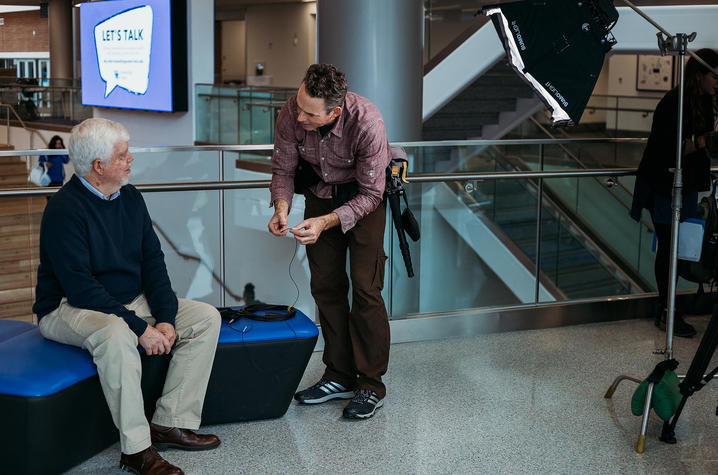Bottge Bridging Gap Between Research, Practice

LEXINGTON, Ky. (April 24, 2019) — Brian Bottge is known for his research in teaching math to struggling students — and for helping teachers put the findings into action. Bottge has spent most of his career helping bridge the gap between university-level research and practice, bringing math to life for thousands of students. His work is being featured by the Council for Exceptional Children in a new video. To view it, click here.
Prior to his appointment in the University of Kentucky College of Education's Department of Early Childhood, Special Education, and Rehabilitation Counseling, Bottge was professor at the University of Wisconsin-Madison where he achieved professor emeritus status. Prior to assuming university positions, Bottge gained valuable experience as a special educator at the elementary and middle school levels for 10 years, an assessment coordinator for a large school district in Minnesota for 10 years and a Peace Corps teacher volunteer. Known as Enhanced Anchored Instruction, the methods Bottge studies are designed specifically for adolescents with learning disabilities, but have been effective with students at all achievement levels.
Over the past seven years, the Institute of Education Sciences (the statistics, research and evaluation arm of the U.S. Department of Education), awarded Bottge two four-year research grants that total nearly $4 million. The earlier grant employed two randomized controlled trials to test the efficacy of technology-based and hands-on math curricula developed by Bottge and colleagues. In the first study, 331 students with disabilities and 49 special education teachers in 31 Kentucky middle schools participated. In the second study, 24 special education teachers, 25 math teachers and 471 students in 25 Kentucky middle schools participated. Results showed significant improvement in the fractions computation and problem-solving skills of students using the new forms of instruction.
The focus of the current grant is on assessment. The research team has developed formative assessments to accompany fractions computation and problem-solving lessons. They are designed to provide teachers with up-to-date information about student progress and how to correct student misunderstanding. Key contributors at UK include project manager Linda Gassaway, co-primary investigator Xin Ma, and graduate assistants Meg Gravil and Megan Jones. Collaborators at the University of Georgia include co-primary investigators Allan Cohen, Hye-Jeong Choi and Laine Bradshaw. Longtime colleague Enrique Rueda, multimedia artist at the University of Wisconsin-Madison, made the assessments. This year the team is analyzing data collected from two studies that involved over 100 students with disabilities, 19 special education teachers, and 11 Kentucky schools.
Bottge is the William T. Bryan Endowed Chair in Special Education in the college’s Department of Early Childhood, Special Education, and Rehabilitation Counseling. More information is available on the website of the curriculum development grant: http://edsrc.uky.edu/TEAM2/ and the assessment grant: http://edsrc.uky.edu/AIMs/index.html.




